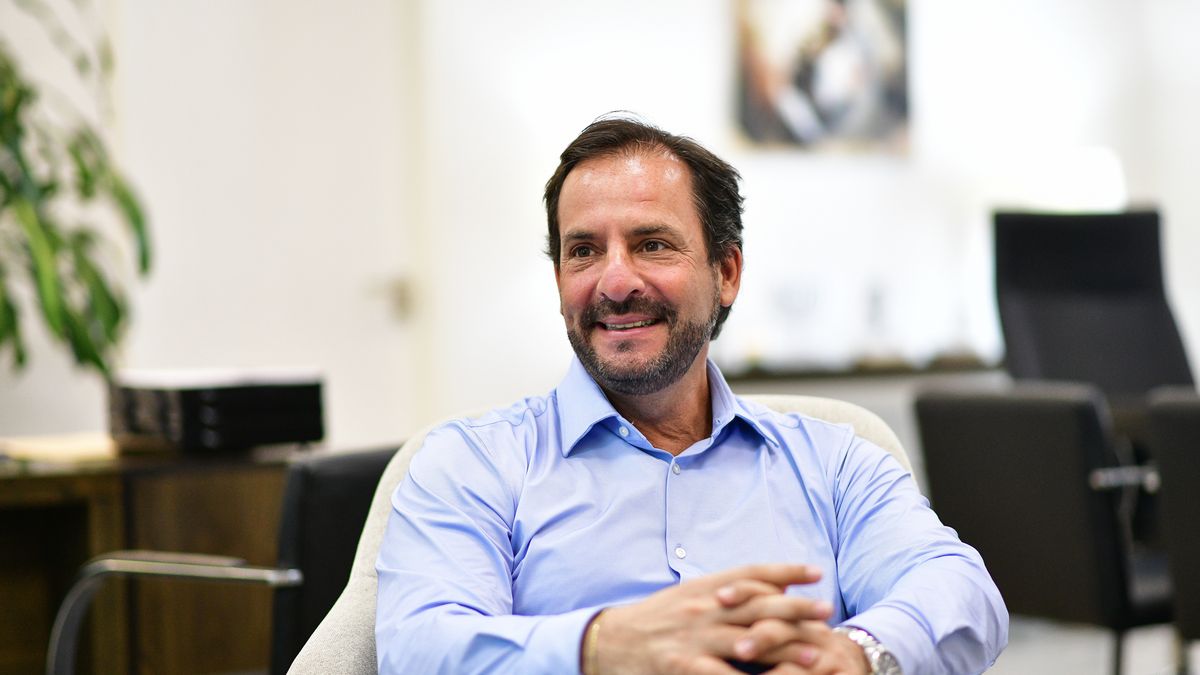On the other hand, the mayor with Escobar’s license anticipated that they will create a state software company, add more companies to the tax exemptions of the knowledge economy law and expect that 70,000 students will be received from the Argentina Training Program, after More than 230,000 people signed up.
Journalist: The special monotribute for programmers will be dealt with in extraordinary sessions. What expectations do you have for Congress?
Ariel Sujarchuk: It was a project discussed with many sectors. The State has to provide a clear and simple tool so that a person can work abroad, invoice their services, and that they do not have to collect in black. It is necessary to regularize this situation for the liberal professions, and make it compatible with the traditional monotributo. Why wouldn’t the opposition approve something that makes it easier for hundreds of workers and allows new dollars to enter Argentina? In the knowledge economy we should continue with the line of State policy: for example, the software law was approved in 2003 and is still in force, or last year the bio and nanotechnology law was approved by consensus.
Q.: How many dollars do you estimate could enter if the professionals enter the dollars legally and not through other mechanisms such as cryptocurrencies?
ACE: It will be necessary to see when it is approved and when it is regulated. But we estimate at least $2 billion annually.
Q.: In 2022, the Central Bank allowed professionals to export US$1,000 per month without having to settle it in the official dollar. How did that initiative go?
ACE: Bad, bad because it is very little money. This does not have to be a symbolic initiative, it has to be really effective.
Q.: The private sector states that workers resign to work abroad. Does this bother the sector, because somehow the situation would be whitewashed?
ACE: Some worry, yes. But we sat down to talk to everyone to put together the project, that’s why there is the ceiling of US$30,000 per year. When you do the calculations, it doesn’t affect them. And we must also recognize the right of someone to be able to provide services abroad, and it is not incompatible with working for a company. This is not just for programmers, but gamers, game testers, writers, etc. How are we not going to allow Argentine talent, when they have the opportunity to sell a service abroad, they cannot do it legally. Recognition is for something that already happens. What we are not going to allow in any way is that trout invoices are put together, because that is where it will fall with all the sanctions of the criminal tax law.
Q.: Are knowledge economy exports expected to increase in 2023?
ACE: Yes, we expect them to exceed US$9 billion annually. In December we regulated the export promotion regime, so it came into force in January, allowing companies to access 30% of the dollars of their incremental exports.
Q.: 2022 was not a good year for tech unicorns. What do you expect for 2023?
ACE: It is going to be a great year for the knowledge economy starting in March due to a battery of measures that Massa is taking. The Secretariat has more than a budget, we are going to finance the video game and satellite industry, the biotechnology regime also comes into effect, we hope that 70 thousand students from Argentina will receive Program 4.0, we are implementing a Node program to finance technological poles. We are also going to move forward with a state software company.
Q.: What is the reason that justifies the intervention of the State in a state-owned software company?
ACE: Today it is a necessity. It is very difficult for the State to retain talent, because there is no category to pay and hire under the modality that individuals have. In this way we will be able to have people hired under other modalities. It also lowers the costs to the State, because if it does not have to bid and hire third parties. Today any ministry requires software. And in turn, sensitive information remains within the State so that it is not in private hands. It will be a state company, as is Arsat. We also want to work with SMEs that sometimes do not have the volume to work with the State, and contract for projects.
Q.: Are there any estimated fiscal costs of this new venture?
ACE: It will be a surplus company. It is also expected that in the statute there will be distribution of profits among workers.
Q.: How will it be in surplus if it only supplies the public sector?
ACE: The idea is to start with the State because there is a lot to do, especially after the digitization that the pandemic brought and then there will be time to expand. The state company Invap now exports radars, but it has been around for 60 years.
Q.: A state company should be approved by Congress. And the opposition claims that the number of state companies and public employment must be reduced.
ACE: But there are no state software companies. We see it as an advanced idea that can achieve enormous efficiency, it is something strategic that is going to become an icon in the state software organization.
Q: As for private companies, are they going to continue adding to the exemptions provided by the knowledge economy law?
ACE: When we took over with Massa there were about 515, and now 639. That in 100 days of management. In 2023 we are going to hit a very strong acceleration.
Q: How much would closing the 100% currency gap help the sector to start?
ACE: The economic and monetary policy that Massa is carrying out will tend to reduce the gap and throughout this year we are going to gradually reduce it, with fiscal order, lower inflation, and strengthening of reserves. The formula is clear.
Source: Ambito
David William is a talented author who has made a name for himself in the world of writing. He is a professional author who writes on a wide range of topics, from general interest to opinion news. David is currently working as a writer at 24 hours worlds where he brings his unique perspective and in-depth research to his articles, making them both informative and engaging.




